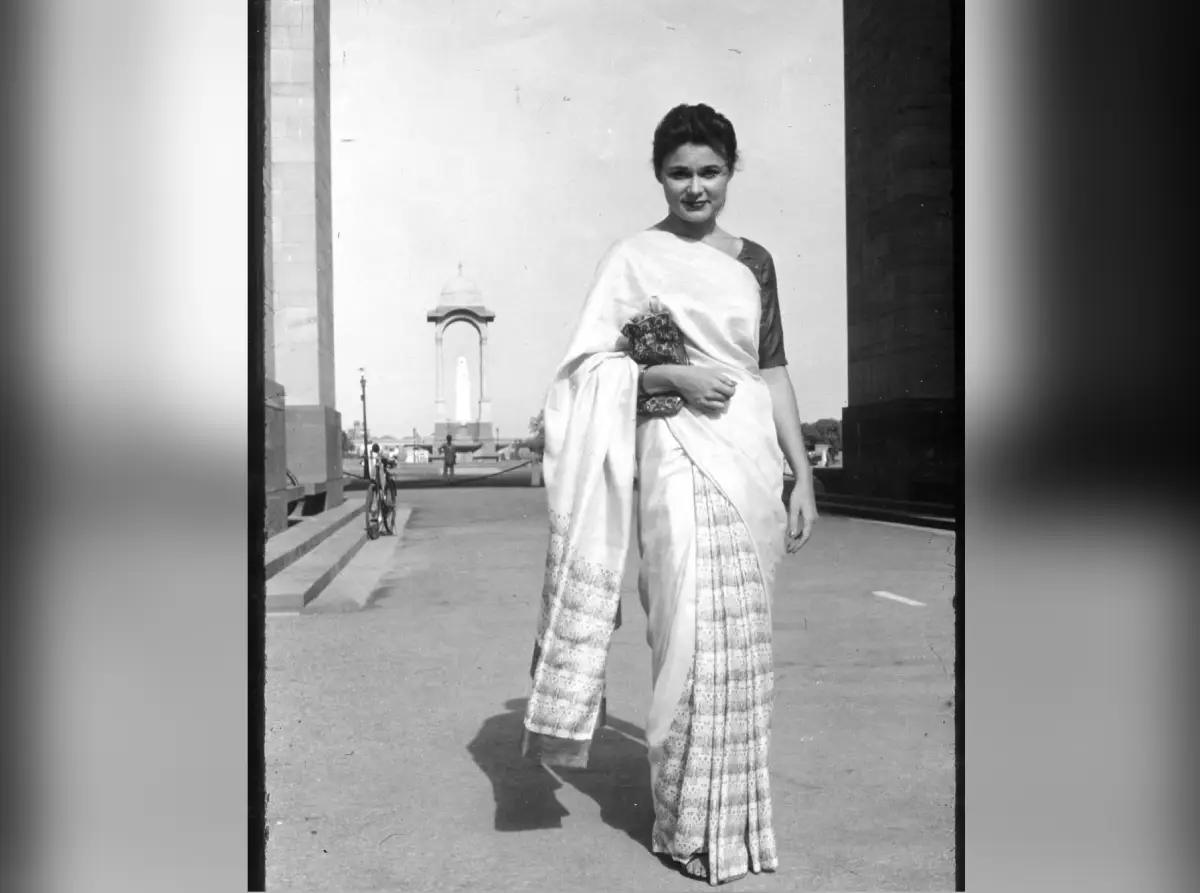
Gloria Steinem On Kamaladevi Chattopadhyay’s Lasting Impact On Her
Photo: From the archives of Gloria’s Foundation
India-West News Desk
NEW YORK, NY – Gloria Steinem, renowned feminist and social activist, in a recent Instagram post shared a powerful memory from the 1970s that highlights the lasting impact of her meeting with Kamaladevi Chattopadhyay, one of India’s most iconic figures.
“I first discovered the great problem of history only telling stories through the dominant lens when I lived in India for two years after college and visited with Kamaladevi Chattopadhyay, a colleague of Gandhi’s and a founder of the nationwide handicraft movement,” she posted, noting how “tea with Kamaladevi transformed my understanding of women’s history.”
Steinem’s reflection, posted at length on her foundation’s Substack, recalls an afternoon spent in New Delhi with Chattopadhyay, a woman who played a key role in India’s independence movement and the country’s handicraft revival.
At the time, Kamaladevi was already a legend. She had worked closely with Mahatma Gandhi and Jawaharlal Nehru in the fight for freedom, spending time in British jails for her activism. Later, she led efforts to preserve India’s handicraft traditions, advocating for their place in the modern world.
Steinem recalls how she and her close friend Devaki Jain sought out Kamaladevi’s advice on a project. They were considering creating a guide that would use Gandhi’s nonviolent principles as a foundation for the feminist movement. As they explained their ideas, Steinem says,Kamaladevi listened quietly before sharing a surprising insight: “Of course Gandhi’s tactics were suited to women — that’s where he learned them.”
This statement shifted Steinem’s understanding of history. She realized that Gandhi’s strategies were not just influenced by women—they were shaped by their wisdom and contributions. The exchange made Steinem reflect on how history often overlooks women’s roles, even as their impact is central to shaping the world.
Although Steinem lost touch with Chattopadhyay over time, the memory of that conversation stayed with her, she says, reinforcing the idea that women’s contributions to history deserve to be recognized and celebrated.
Kamaladevi passed away at the age of 85, just after lighting a lamp to mark the golden jubilee of the All India Women’s Conference. In one final act of humility, she chose not to stand on the podium with other dignitaries. Instead, she lit the lamp at the back of the hall, bringing joy to those in the farthest rows.
Steinem’s reflection, shared in her 1995 book Moving Beyond Words, reminds us of Kamaladevi legacy in the lessons she taught others about the power of women’s voices in shaping history.



